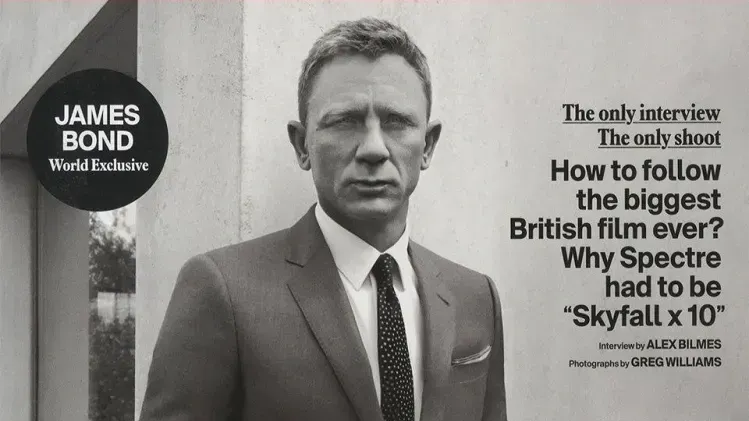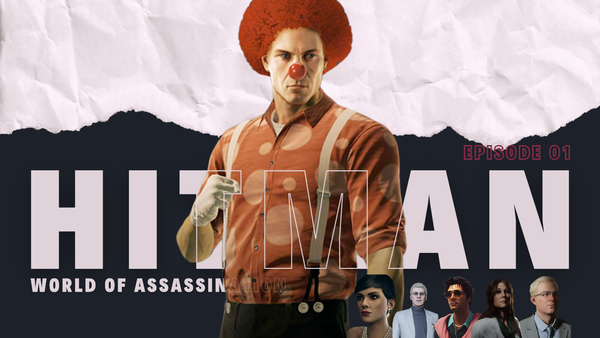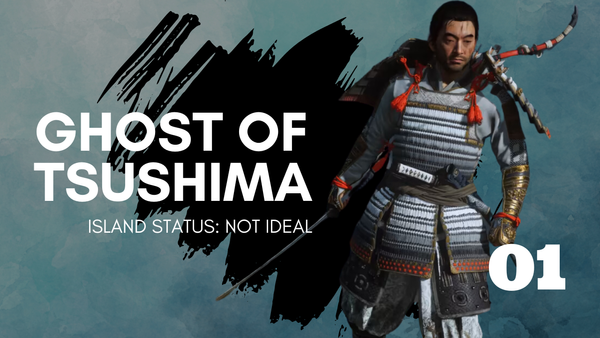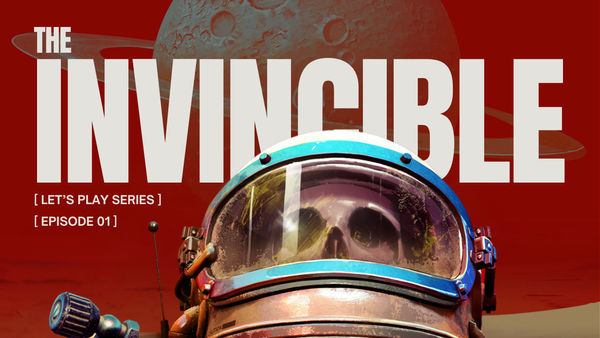The Cultural Appeal of James Bond, and How He Could Endure | Essay

The twentieth-century James Bond is, to use M's words, 'a misogynist dinosaur, a relic of [a] cold war' that never turned hot, and he's the result of an unholy trinity of (toxic) hyper-masculinity, international terrorism, and whatever the hell 'quintessential Englishness' actually means.
Just after the UK premiere of SPECTRE, a colleague of mine and I got talking about my mild Bond obsession. Since he'd been put off by Quantum of Solace's comparatively weak performance, he asked me how I would explain that 007 became such a cultural phenomenon that he's still around today, and that the franchise is actually still growing. Since pulling meta out of my butt at a moment's notice is kinda my whole thing, I may have gone off on a fifty-year tangent. I've been since asked to put my thoughts into writing, so here you have it.
Basically, James Bond is the ultimate fantasy. Not just a fantasy of masculinity and danger, but it is first and foremost a fantasy of Englishness and Imperialism in a world in which the Empire (not to be confused with the Dark Side of the Force, despite the uncanny resemblance) holds no more colonial power.
Embroiled in the Cold War and a rapidly escalating arms race between East and West, the going was tough. Long before the United States took up the mantle of world police, the British Empire fought to bring so-called "order and civilisation" to any corner of the world it could reach, and then put it through the wringer for profit. It brought tennis to India, all its naughty people to Australia, and soap to little Black children everywhere, to wash them white and clean. The English gentleman was the epitome of class, manners, and that stiff upper lip. Colonialism, misogyny/misogynoir, and racism were, and remain to this day, England's highest-grossing exports. Then came revolutions, global upheaval, two world wars, and civil unrest. In the middle of the 20th century, those notions of commonwealth were on their way out, but its consequences far from forgotten.
To be blunt: James Bond was a man out of time from the moment of his conception. He was always entirely improbable — except in the minds of the audience, and that depended on how much the producers could make people want him. The crux of the matter is that the effort to suspend disbelief and buy what he was selling was a lot easier to get people to make in the 1960s than it is now.
Man’s man, ladies’ man, man about town
Disclaimer: this is not supposed to be an indictment of James Bond, or Ian Fleming, or DanJaq. It is, if anything, an indictment of the cultural practices that made him possible, that made him who he is. It is not a railing rant to never watch a Bond movie again. I love James Bond.
I'm just also very aware that he's an asshole.
I mean, let’s face it: we're lucky James Bond is on the side of the Good. (And just what Good is, is highly debatable.) If he wasn't, we'd be fucking terrified. If it weren't for his "pathetic love of country," he'd make a fantastic villain; and it’s nought but that one thing that still makes him the hero we're supposed to be identifying with. He's our white knight in shining body armour, and he comes riding in on a wave of destruction that we love. He leaves devastation in his wake, and we still tell ourselves it's for the greater good. He's the hero.
The twentieth-century James Bond is, to use M's words, 'a misogynist dinosaur, a relic of [a] cold war' that never turned hot, and he's the result of an unholy trinity of (toxic) hyper-masculinity, international terrorism, and whatever the hell 'quintessential Englishness' actually means. Spoiler: it means racism.
Let's start at the beginning.
James Bond always gets the girl. Always. Even the card-carrying lesbian named Pussy Galore who he physically forces to kiss him until she just magically succumbs to his charms. (Like, what the fuck, Ian?) James Bond knows what he wants and takes it without stopping to ask for permission, because permission is implied and taken as a foregone conclusion. He has a license to kill, he has carte blanche: he operates beyond his brief and is yet never held accountable for his actions, because he's just too good. Nobody does it better, and the smug son of a bitch knows it, too.
Plus, he blows shit up and walks away from the explosion tucking a fresh blossom into his lapel. He brings order to the most "exotic" places on earth — puts things right and walks away, goes back home after a job well done, a beautiful woman on his arm. He dispatches henchman and villain alike with a witty one liner, he oozes class, he's suave and dangerous and cool. He's any white imperialist's wet dream, and those dreams weren't just forgotten in the 60s. His movies are a reliving of the British imperialist fantasy, of colonialism, of manifest destiny. And we're still seeing echoes of this in other media: Call of Duty, Far Cry... over and over again, and the formula never changes. White versus brown. He comes in like a wrecking ball, devastates regions, destabilises governments, leaves behind a dangerous power vacuum.
Sound familiar?
It is predicated on all this that cinema-going men wanted to buy into this fantasy, that and the fact that he's all about getting everything he wants. He was presented as what you have to be if you want to get the girl. And the perfidious thing about it is: women were drawn to him, and even though he’s the 'fuck 'em, leave 'em, probably get 'em killed’ type, his relationships with all the Bond girls, as they were still known then, were highly romanticised, no matter how unhealthy the power dynamic.
How many times have people said this about characters like James Bond:
Boys will be boys; that's just how he is; he's still so wounded after [insert name of tragically fridged female] that he just can't help himself.
And all those women gladly sink into his arms and moan his name, happy to help distract him from the danger for just a little while. It was in the 90s that it became about distracting him from the pain of having killed all those people, but in the 60s and 70s, he just took what he wanted. Even if who he wanted wasn't such a big fan at first.
When the first Bond movie, Dr No, came out in 1962, no-one anticipated it would make the kind of splash it did, or that the series would eventually overtake the novels both in popularity and cultural prevalence. Today, people think of the movie franchise first when they think of Bond, although the novels do remain widely read. In the 1960s, the air of danger and power surrounding that man was like catnip. The studio and creative team knew it, and used it in their marketing and branding from the very beginning.

Excitement! Gratuitous violence! International intrigue! Sex! So many exclamation marks!
Proving the size of his dick at every opportunity was also really, really important, you guys. But lest we forget: at the same time as fulfilling and fuelling the fantasies of superstraight guys everywhere, James has also made scores of boys and men absolutely miserable. The particular brand of hyper-masculinity he embodies cannot sustain itself under scrutiny, because it's not real. Admitting the statistical anomaly that is Tracy in On Her Majesty's Secret Service *, James Bond in the 60s and early 70s is the personification of everything that's wrong with patriarchal notions of what it means to be a man. Y’know. A real man. Like Rock Hudson.
Do you see what I did there? **
A few months ago, a friend of mine was completely surprised to discover that Neil Patrick Harris is gay. Yes, Barney is played by a dude who's married to another dude and currently raising two kids. What does that tell us? Gender is a performance. (And it's called acting.) There was no malice in my friend's surprise, it was merely an expression of how we have been conditioned to think of certain people and certain things in certain ways, without conscious effort on our part. We just assume, because that's how things are supposed to be.
Toxic Masculinity Through the Ages
Men like Bond do not exist. They can't, and yet we live in a culture that has, for decades, made him out to be the ideal man, and not just that, but the essential English hero. We're taught that we must want him, must want to be like him. James Bond, as such, is not even a sexist male fantasy anymore, he's morphed into a bloody nightmare. He's an unachievable idea presented as what "real men" are like, and should want to be like. And change was slow to arrive.
Fast forward to the 70s. Bond wore flares, atrocious ties, and Roger Moore's long face and watery eyes. Never again has Bond been so... glib. From today’s perspective, there's no way these movies aren't at least partially, objectively terrible. But at the time, Moore's outings actually got decent reviews and grossed enough money to keep the franchise afloat. In the 80s, however, Moore's brittle bones and increasingly teenaged female companions started feeling pretty out of place and with the actor approaching 60, the hunt was on for a successor. Back then, the producers reeeally wanted Pierce Brosnan, but the poor guy got shanghaied into one last (abbreviated) season of Remington Steele and thus couldn't take the role. He was informed of this the day he was supposed to be presented as the new 007. Life is full of shitty conflicts, man.
And thus, the search continued and they finally landed on Timothy Dalton. His James Bond was very different from Moore's, and his cases were, by comparison, a lot more grounded than Moore's ventures into space and the depths of the ocean. He was very earnest, actually, not least with the women he was with, but still with an air of patronisation and condescension that rang familiar — and he wasn't all that popular. If Roger Moore was the Bond that the 1970s deserved, then perhaps 1989 Timothy Dalton was just in the wrong place at the wrong time.
It took six years for Bond to return, and the end of the Cold War made it that much harder. Used to a world in which friend and foe were easily distinguished and the bad guys firmly placed, for the most part, somewhere behind an iron curtain, the end of the Soviet Union took something else away that used to make 007 as appealing as he was: he was the stalwart against communism and corruption, the defender of the faith. But in 1995, people didn't know what to think about political allegiances, much less international espionage. As such, it made sense that in Brosnan's first outing, he would clean up the remnants of not just one but two wars, with Alec Trevelyan not just any Russian, but a Lienz Cossack*** — and James Bond's supposedly dead best friend.
Tell me, James, do all those vodka martinis ever drown out the screams of the men you've killed?
Oh my, the brooding was heavy with this one. But after GoldenEye, Brosnan's Bond lost that courage to toe the line and turned supremely slick and suave where Dalton had been determinedly rough around the edges. He was as smooth as a baby's arse, the vodka martini equally dry, the carousel of women stunning, and his cases were, in a way, a return to the basics. The lines, too, were as cheesy as during Moore's best days. Aside from the, I think, exceptional GoldenEye, Brosnan's Bond hadn't found his way into the oncoming 21st century the way the producers had hoped. From international media mogul Elliot Carver to oil empress Elektra King and diamond dealer-cum-megalomaniac Gustav Graves, the villains however were moving steadily away from the threat of individual governments preparing for good old-fashioned nuclear war, and the things they were attempting to do weren't so much sci-fi anymore as feasible reality.
Pierce's Bond certainly falls into the category of charming rogue, a girl in every port, and a fast car in the garage. He was repeatedly told he was impossible, and terribly hard to control, but those chickens never came home to roost, and he loved and lost as he always had before. The World is not Enough stands out because he actually fell in love with part of the villainous dynamic duo, but it's not like he hurts for long. The vulnerability teased in GoldenEye, and to an extent in Tomorrow Never Dies and The World is not Enough, never actually becomes part of his character arc. After all, Christmas can come more than once. Speaking of: the amount of times various government officials have caught him attempting re-entry after missions has always been atrocious. And not just that, but sex with and taming the shrew was an inevitability, not an earned reward. Or even a plot point. Even initial resistance to his charms was only ever cursory.
James' irresistible charm that got him any woman he wanted was what made him irresistible to audiences as well, or at least it was still intended as such around the millennium. There is no viable or visible character development because James Bond has to remain a fixture in an ever-changing world. The world is saved, any wounds forgotten. And Die Another Day was so sickeningly self-indulgent and silly that it took another four years before someone else could step into Bond's shoes and well-tailored suits.
And then came Daniel Craig. I don't want to say too much about him here because a lot of what Spectre deals with concerns these issues of character, relevance, and the evolution of masculinity within the Bond franchise. But I think the fact that I have heard from a lot of people that they want "the real James Bond" back, tall, dark and handsome, speaks to the difference that Daniel Craig has made in creating this character anew. His is not the James Bond of 1962, not even that of 2002 (Die Another Day). The fact that expectations of him as a man's man, of him as a spy have changed, the fact that our political landscape is so drastically different from that of post-WWII Europe is not ignored in favour of a gilded fantasy of the olden days. It's made into the plot proper, in which he has to fight to survive and prove his raison d'être. From Casino Royale on, James has to prove that he is still necessary. The world of intelligence gathering has changed, and so have notions of masculinity and Englishness. It is now much harder to suspend disbelief and give oneself over to this massively larger-than-life world of James Bond, and it's precisely because he's been around for so long. Most hugely successful spy movies these days are period pieces (The Good Shepherd, Tinker Tailor Soldier Spy, Bridge of Spies), and those that are contemporary (like Jack Ryan, the Mission: Impossible franchise, the Bourne franchise) work within completely different parameters. And if either period espionage movies or new flicks feature characters anything like James Bond (see The Man from U.N.C.L.E.'s Napoleon Solo, or Kingsman's Eggsy's tryst with the Swedish princess), it's entirely clear that it's homage, even parody. That old James Bond is being poked fun at today; and eviscerated in interviews by Daniel Craig himself.
Of course, the trinity of "girls, guns, gadgets" is still being lauded today. For instance, at the London and the Berlin premières of Spectre, they were cited often enough when people were asked about the continued appeal of this character, and it's certainly the stereotypical answer one expects during press junkets. But there is a cultural underpinning to the success of this franchise that goes further than tits and bullets. It's rooted so much more deeply than the fact that he's just so cool. He's a political fantasy. And unlike Middle Earth, James Bond has some tough times ahead if he wants to continue to prove that we should root for him. Since 2006, the movies have dragged him, kicking and screaming, into the 21st century — rebooting the character was a wise choice, and one that is most likely crucial not only to his survival, but to his ability to tell a story that people are still interested in hearing. His terrible behaviour used to be excused by his charm and pressing need to save the world. He isn't afforded that luxury anymore — because the world he lives in has changed, because the audiences have changed. He may come from the shadows, and we may need him. But we're not obligated to take his shit just because he's handsome and drives a fast car. The producers are starting to realise they can't make Bond movies today the way they used to and still rake in the dough. So Bond has learnt to adapt. And that means treating people with respect even if they have tits, it means being more than a blunt instrument, and it means recognising that the white guy with the gun isn't the centre of the bloody universe.
____________________________________________
Footnotes
* Then again — he fucks how many women up on Piz Gloria? IN ONE NIGHT?
** In case you did not know, Rock Hudson was as gay as a picnic basket. But in Hollywood in the 50s, he was the man, and kissing Doris Day a lot.
*** The Repatriation of Cossacks after the Second World War refers to the forced repatriation to the USSR of the Cossacks and ethnic Russians and Ukrainians who were allies of Nazi Germany during the Second World War. Stalin claimed they were Russian citizens, the British turned the Cossacks in their custody over under false pretenses in Lienz, Austria. Stalin then had most of them executed.




